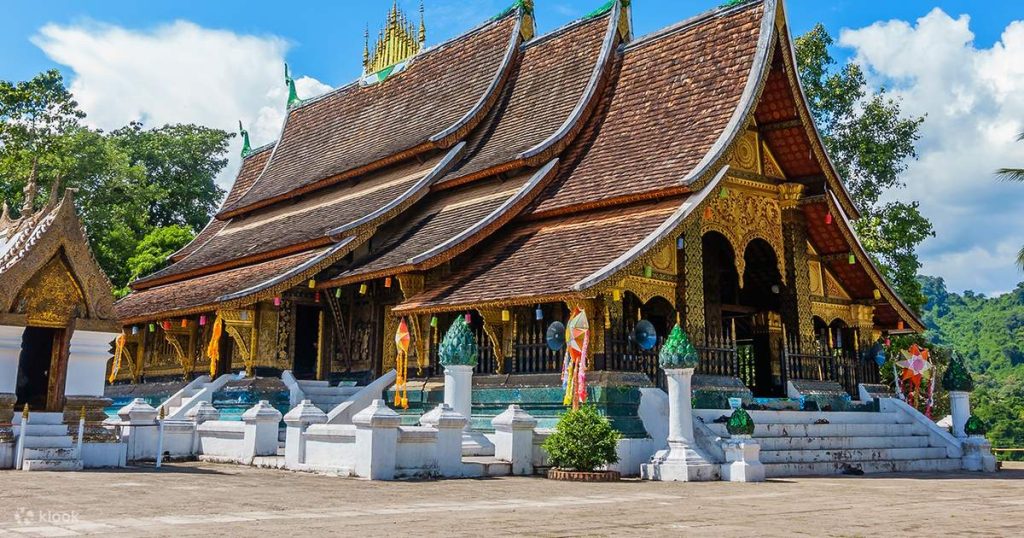Introduction
Solo travel is not just about visiting new places; it’s about discovering who you are. It’s an opportunity to step out of your comfort zone, push your boundaries, and experience the world in a way that is completely unique. Whether you’re looking to escape the mundane, face your fears, or find deeper meaning in life, traveling solo has a transformative power. This article will explore why solo travel is so motivating, how it can lead to self-discovery, and how you can embrace the journey.
Key Takeaways
- Solo travel is a powerful way to discover yourself and gain confidence.
- It allows you to step outside your comfort zone, leading to personal growth.
- Solo travel provides freedom, autonomy, and the ability to make independent decisions.
- Different types of solo travel experiences, such as adventure travel, cultural exploration, and wellness journeys, cater to various motivations.
- The challenges of solo travel help build resilience, and overcoming them creates a sense of accomplishment.
- Traveling solo teaches you valuable life skills, such as problem-solving, communication, and adaptability.
Solo travel isn’t just about visiting new places; it’s about transforming your life and discovering who you truly are. So, take the plunge—embrace the journey and find yourself along the way.
what is Solo Travel Motivation?
Solo Travel Motivation refers to the inner drive or reasons that inspire a person to travel alone, seeking the benefits and personal growth that come with venturing out independently. It encompasses the desire to explore the world on one’s own terms, face challenges, and experience freedom, all while gaining valuable insights into oneself and the world. Motivations for solo travel can vary greatly depending on individual preferences, goals, and interests, but generally, they revolve around personal empowerment, self-discovery, and the joy of independence.
Here are some common factors that contribute to Solo Travel Motivation:
Self-Discovery and Personal Growth
Traveling alone provides an opportunity to explore not only new destinations but also to gain a deeper understanding of oneself. It encourages personal reflection, boosts self-confidence, and helps individuals discover their strengths, preferences, and abilities. Solo travelers often find that they are more capable than they imagined, especially when faced with unfamiliar situations.
Freedom and Independence
One of the strongest motivators for solo travel is the freedom to make decisions without needing to accommodate the needs, desires, or schedules of others. Whether it’s choosing the destination, the activities, or the pace of the journey, solo travelers enjoy the liberty of setting their own itinerary. This freedom can feel empowering and transformative.
Overcoming Fear and Building Resilience
Solo travel often pushes people outside of their comfort zones, confronting fears such as loneliness, insecurity, or the unknown. Facing these challenges can be incredibly motivating, as travelers learn how to cope with unfamiliar environments and situations. Overcoming obstacles—whether navigating public transportation in a foreign city or dealing with language barriers—builds resilience and a sense of accomplishment.
Empowerment and Confidence
Solo travelers frequently gain a boost in confidence and empowerment. Making decisions on your own, handling unexpected situations, and finding your way in a new city or country fosters a strong sense of autonomy and self-reliance. As individuals conquer their fears and adapt to new environments, they develop greater trust in their abilities.
Desire for Adventure

Many solo travelers are driven by the desire to explore new places, try new activities, and experience things they would not be able to do in a group setting. Whether it’s hiking through remote landscapes, trying a new cuisine, or engaging with different cultures, solo travel offers the chance to experience life in an adventurous and unfiltered way.
Why Solo Travel is Motivating
Personal Growth
Traveling alone forces you to navigate the world on your own terms. Without anyone else to rely on, you quickly learn how to trust your instincts, solve problems, and adapt to new situations. These experiences, however challenging, contribute significantly to personal growth.
Example: When Sarah, a first-time solo traveler, visited Italy, she initially felt overwhelmed by the language barrier. However, after a few days of interacting with locals and navigating the transportation system, she found herself growing more confident in her ability to handle new environments. By the end of her trip, Sarah had not only learned some Italian but also gained confidence in her problem-solving skills.
Embracing Independence
Solo travel teaches you to be independent. It’s all about making decisions on your own, from choosing where to go to managing your budget and itinerary. This sense of autonomy is incredibly empowering.
Example: Mark, an avid solo traveler, decided to visit Japan for a two-week adventure. He had never traveled without a group or companion before, and he was apprehensive at first. But by the end of the trip, Mark realized how much he appreciated being able to decide his daily activities and experiences without compromise. He felt liberated and more self-assured.
Confronting and Overcoming Fears
Traveling alone often forces you to confront your biggest fears. Whether it’s the fear of being alone in an unfamiliar place, navigating a new culture, or dealing with unexpected situations, solo travel challenges you to face these fears head-on.
Example: Maya, a solo traveler, was initially afraid of public transportation in foreign countries. On her trip to Thailand, she took a leap and decided to ride the Bangkok Skytrain alone. Although the experience was intimidating, Maya felt an immense sense of pride when she successfully completed her journey, overcoming her fear of getting lost.
The Types of Solo Travel Journeys
Solo travel can take many different forms, and the type of journey you choose will often depend on what motivates you. Here are some common types of solo travel experiences:
Adventure Travel
Adventure travel is perfect for those who seek excitement and adrenaline. It involves activities like hiking, trekking, mountain biking, and bungee jumping. These trips allow you to push your physical and mental boundaries.
Key Features:
- Thrilling activities (e.g., skydiving, mountaineering)
- Challenging terrain and environments
- Opportunity for physical fitness and growth
Example: A solo hiker in New Zealand’s South Island might trek through Fiordland National Park, experiencing awe-inspiring natural beauty while testing their endurance.
Cultural Exploration

Cultural travelers dive deep into the history, traditions, and ways of life of a place. This can involve visiting museums, temples, engaging with locals, and participating in local traditions or festivals.
Key Features:
- Immersive cultural experiences
- Visits to historical landmarks
- Interaction with local people
Example: A solo traveler visiting Kyoto, Japan might explore ancient temples, participate in a traditional tea ceremony, and engage in conversations with local artisans, deepening their understanding of Japanese culture.
Wellness and Self-Discovery
Solo travel can be a journey of relaxation and introspection, especially when focused on wellness. These trips are designed for travelers seeking personal healing, mindfulness, or relaxation, often at wellness retreats or remote destinations.
Key Features:
- Yoga and meditation retreats
- Reconnection with self through solitude
- Nature and spiritual healing experiences
Example: A solo traveler visiting Bali might join a meditation retreat in Ubud, allowing themselves the space to focus on their mental and spiritual well-being.
Digital Nomad Life
For those who work remotely, digital nomad travel offers the freedom to explore new places while continuing to work. These travelers seek locations with good Wi-Fi, co-working spaces, and a vibrant digital community.
Key Features:
- Remote work flexibility
- Cultural immersion with a work-life balance
- Access to co-working spaces and cafes
Example: A solo traveler working remotely in Lisbon might spend their days exploring the city’s neighborhoods, working from cafes, and meeting fellow digital nomads.
How Solo Travel Helps You Discover Yourself

Solo travel is not just about the places you visit, but also about the person you become through the journey. Here’s how it helps you discover yourself:
Building Confidence
As you navigate a foreign country and handle all the logistics on your own, you naturally build confidence. The sense of achievement you gain from accomplishing tasks like booking a flight, finding your way around a new city, or communicating in a new language reinforces your self-belief.
Developing Resilience
Solo travel often presents challenges—missed flights, language barriers, lost luggage—but these obstacles teach you how to adapt and persevere. Over time, these experiences help you build emotional resilience.
Gaining a New Perspective
Spending time alone in a new place helps you step back and reflect on your life from a new perspective. You may find that the distractions of daily life fade away, and you can focus on your personal goals, values, and desires.
Motivational Benefits of Solo Travel
Solo travel offers both internal and external benefits. Let’s look at some key motivating factors:
| Benefit | Description |
|---|---|
| Self-Discovery | Traveling alone allows you to connect deeply with yourself and your needs. |
| Empowerment | Making your own decisions and navigating new challenges gives you strength. |
| Freedom | Traveling solo allows you to choose where, when, and how you want to go. |
| Cultural Insight | Exposure to new cultures broadens your perspective and empathy. |
| Personal Accomplishment | Overcoming solo travel challenges fosters a sense of achievement and pride. |
Also Read : Which Places in the USA Are Perfect For Traveling Alone?
Conclusion
Solo travel is more than just a way to see the world—it’s a journey of self-discovery. It offers a unique chance to face challenges, embrace new experiences, and grow as a person. Through independence, empowerment, and resilience, solo travel can change the way you view yourself and the world around you. Whether you’re motivated by adventure, culture, wellness, or work, traveling solo allows you to create a deeper connection with both the world and yourself.
(FAQs)
Is solo travel safe?
Yes, solo travel is generally safe, especially when you plan ahead. Research your destination, stay aware of your surroundings, and take safety precautions such as securing your belongings and using reliable transportation.
How do I stay connected while traveling alone?
You can use a local SIM card or a global roaming plan for your phone. Many cafes, hostels, and hotels also offer free Wi-Fi, so you can stay connected via social media, messaging apps, and video calls.
What are the best destinations for first-time solo travelers?
Destinations like Japan, New Zealand, Iceland, and Portugal are known for being safe, welcoming, and easy to navigate for first-time solo travelers.
Can I meet people while traveling solo?
Absolutely! Joining group tours, attending events, staying in hostels, and using apps like Meetup can help you connect with fellow travelers and locals.
What should I do if I feel lonely while traveling solo?
Loneliness is common during solo travel. Stay connected with friends and family, try group activities, and spend time with locals. Use the opportunity for self-reflection and growth.
How do I manage my budget while traveling solo?
Create a travel budget, stick to affordable accommodation, eat like a local, and use public transportation. Solo travelers often find they can save money by avoiding group tours and shared costs.
How can solo travel help me grow personally?
Solo travel challenges you to step outside your comfort zone, build confidence, develop resilience, and reflect on your personal goals, leading to significant personal growth.
